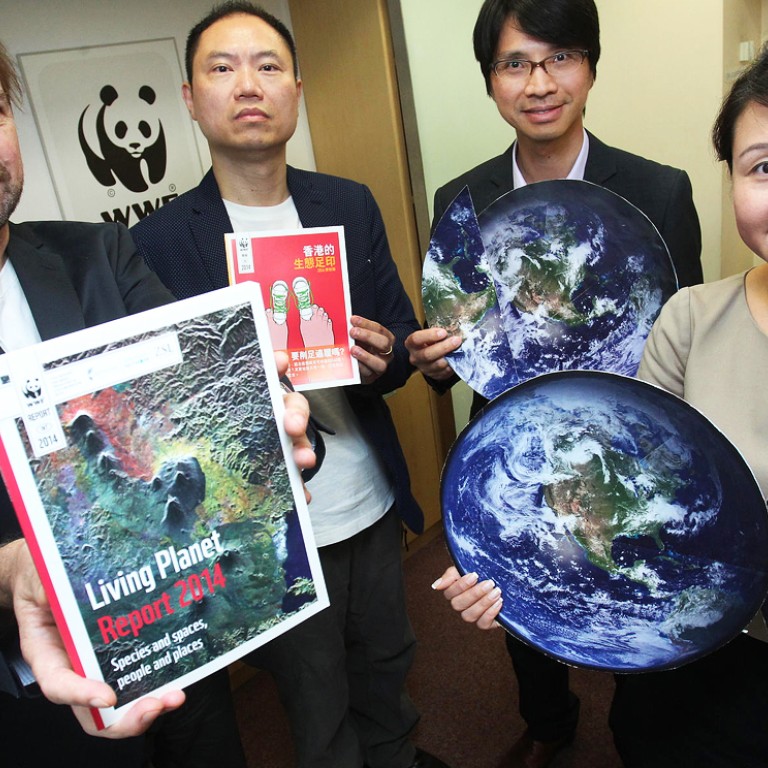
'Three Earths needed' if the world lived like Hong Kong, WWF warns
WWF study reveals that the city's 'ecological deficit' is now the worst in Asia and the third biggest in the world as consumption increases
Hong Kong's "ecological deficit" - the difference between the resources it uses and its capacity to generate them - has surpassed that of Singapore to become the worst in Asia, a WWF study has found.
Excessive waste and rising consumption have fuelled the increase, which emerged in an annual study by the international conservation group. If everyone in the world lived and consumed like Hongkongers, three Planet Earths would be needed to sustain their lifestyles, WWF said.
WWF-Hong Kong warned of a yawning gap between the city's "ecological footprint" - the sum of the land needed to provide the food it consumes, its carbon footprint and its urban area - and its "biocapacity", the land and sea available to provide resources.
Hong Kong's footprint, Asia's second biggest and the world 15th biggest, is now 540 times its biocapacity, the study found. Its ecological deficit is the third largest in the world.
One big contributing factor, WWF-Hong Kong said, was ever-increasing daily consumption by households and businesses, making up 78 per cent of the footprint. Food made up a quarter of that consumption, with the rest accounted for by energy, clothing and transport.
"As you can see from the numbers, we are sliding in the wrong direction and we really must get to grips with our levels of consumption," said Gavin Edwards, WWF-Hong Kong's conservation director. "This recent analysis is an alarming signal to all of us that we are overtaxing the finite resources of our world."
Edwards said addressing excessive consumption could help solve the city's pressing waste disposal problem. The government has warned that landfill sites will soon be full and is looking at options including incinerators and a pay-as-you-throw waste-charging scheme.
The city's ecological footprint grew to 5.4 global hectares (gha) per person from 4.7 gha in last year's report. Biocapacity dropped to 0.01 gha per person, from 0.03 gha. Worldwide, the average ecological footprint was 2.6 gha, against average biocapacity of 1.7 gha, meaning the world was consuming 1-1/2 times what the earth can produce.
Global hectares is a measure of the average productivity of land and sea areas.
Edwards said Hongkongers should not be put off trying to make a difference by the fact most of what Hong Kong consumes is imported. "Through our consumption … and as government in regulating trade, we can have global impact through our local choices," he said.
Cheung Chi-wah, head of the group's footprint programme, said the collective bargaining power of Hongkongers could have an impact on its suppliers elsewhere in the world.
"It's all about supply and demand. For example, we've been working on sustainable seafood for many years. If all customers, suppliers and caterers call for sustainable seafood we will get more. If not, it will go elsewhere."
Cheung called on the government to embrace the idea of measuring the city's footprint and to tackle overconsumption.

